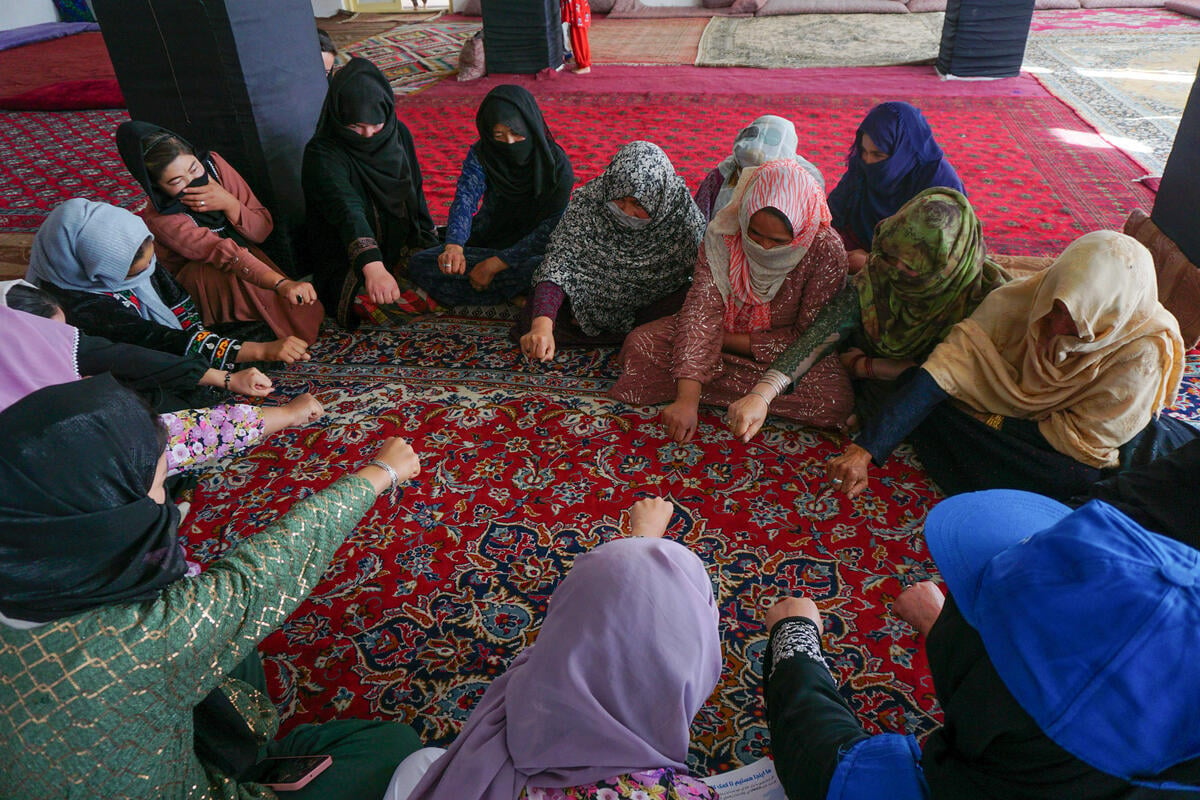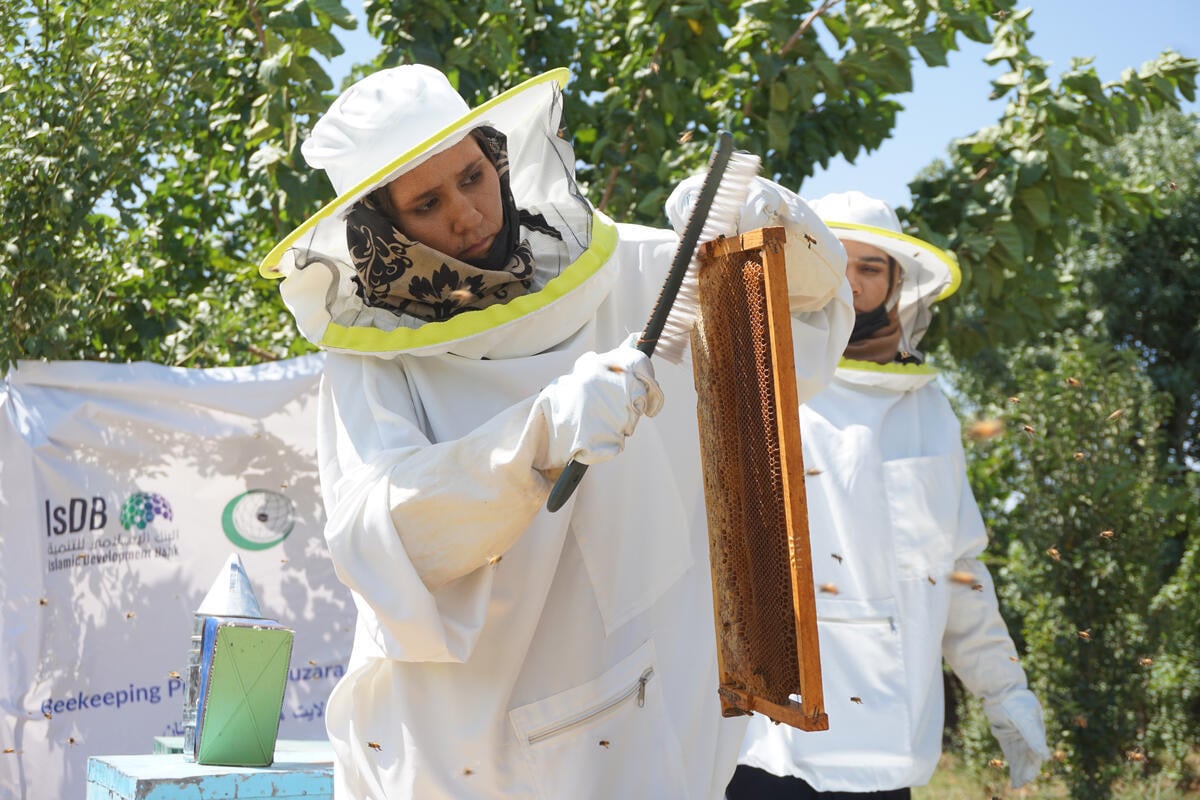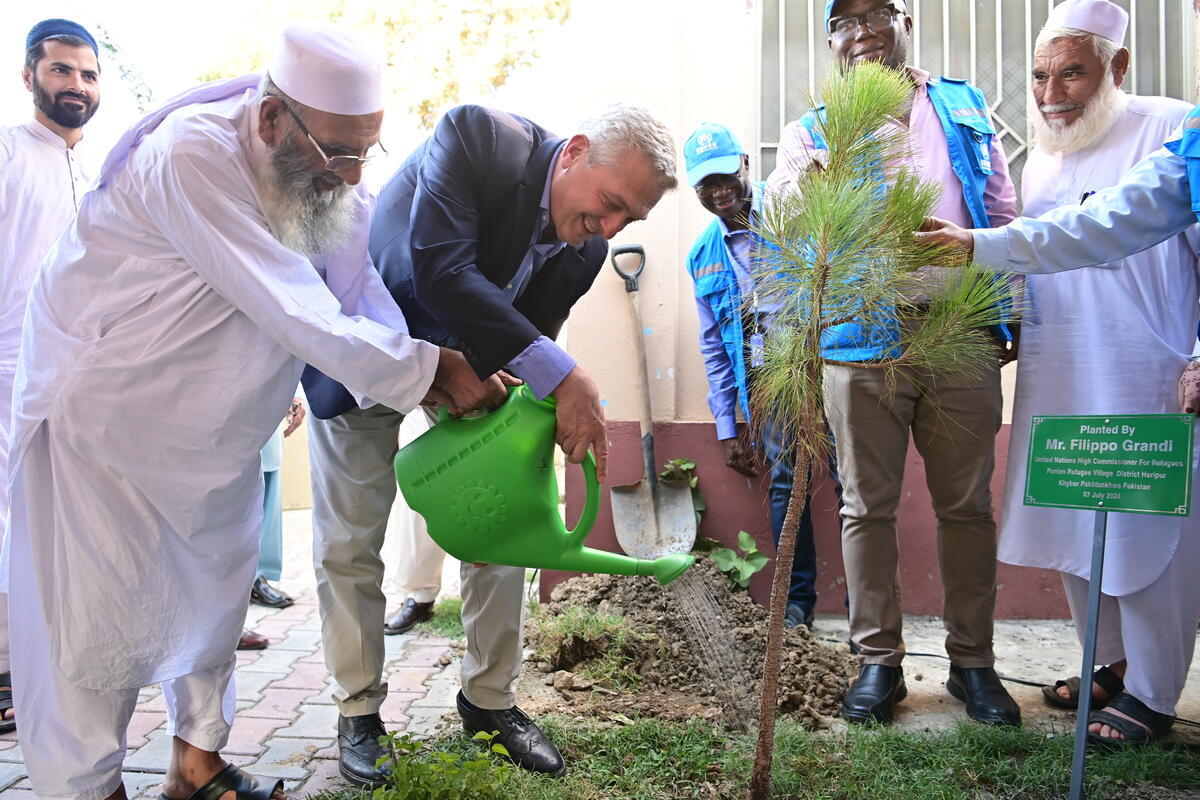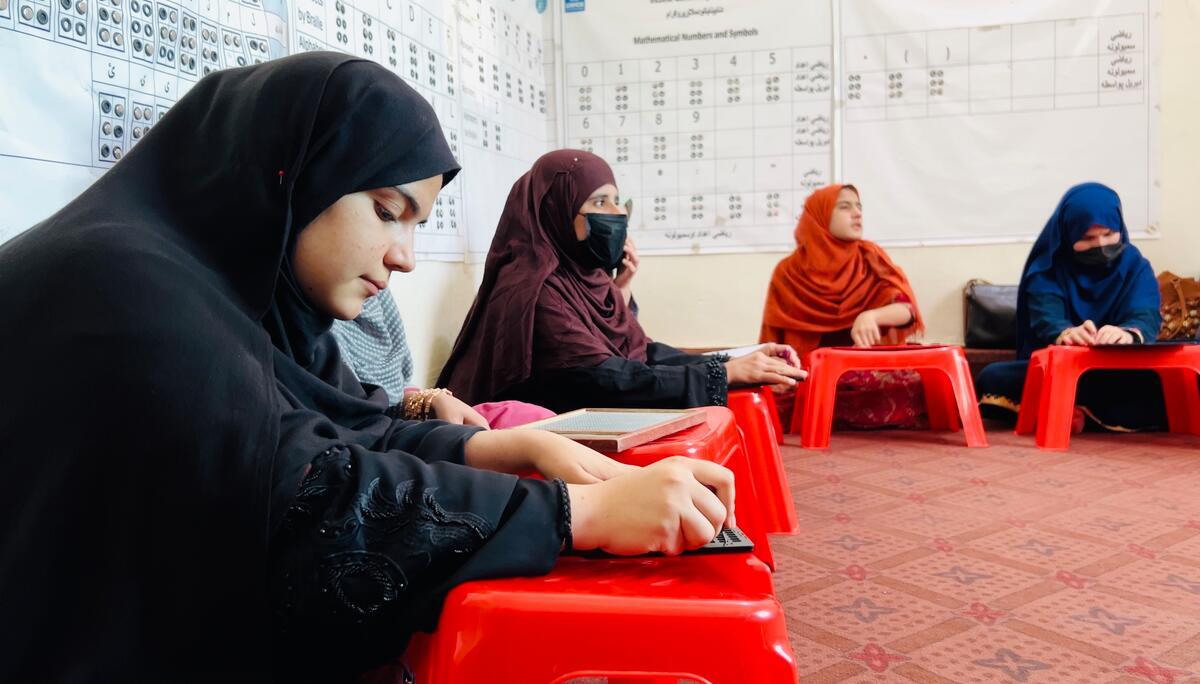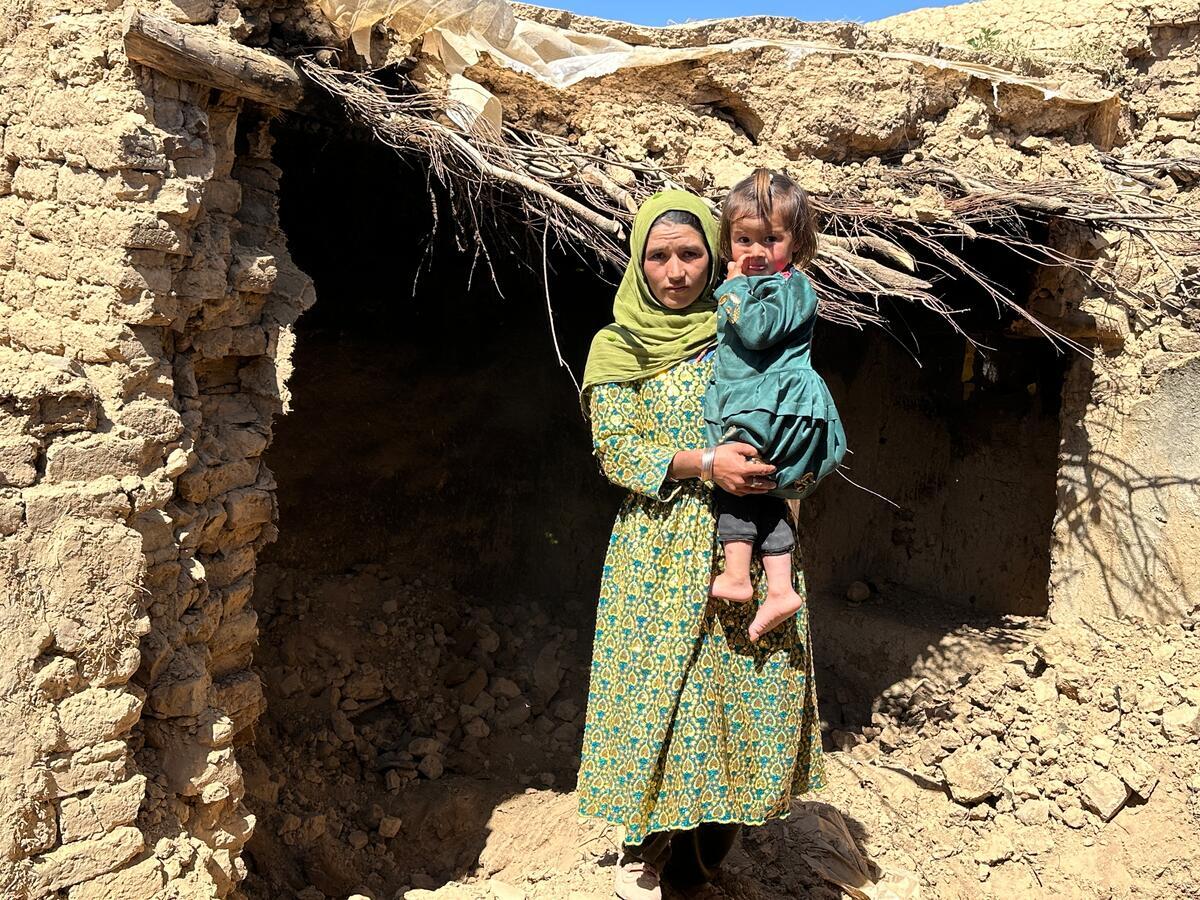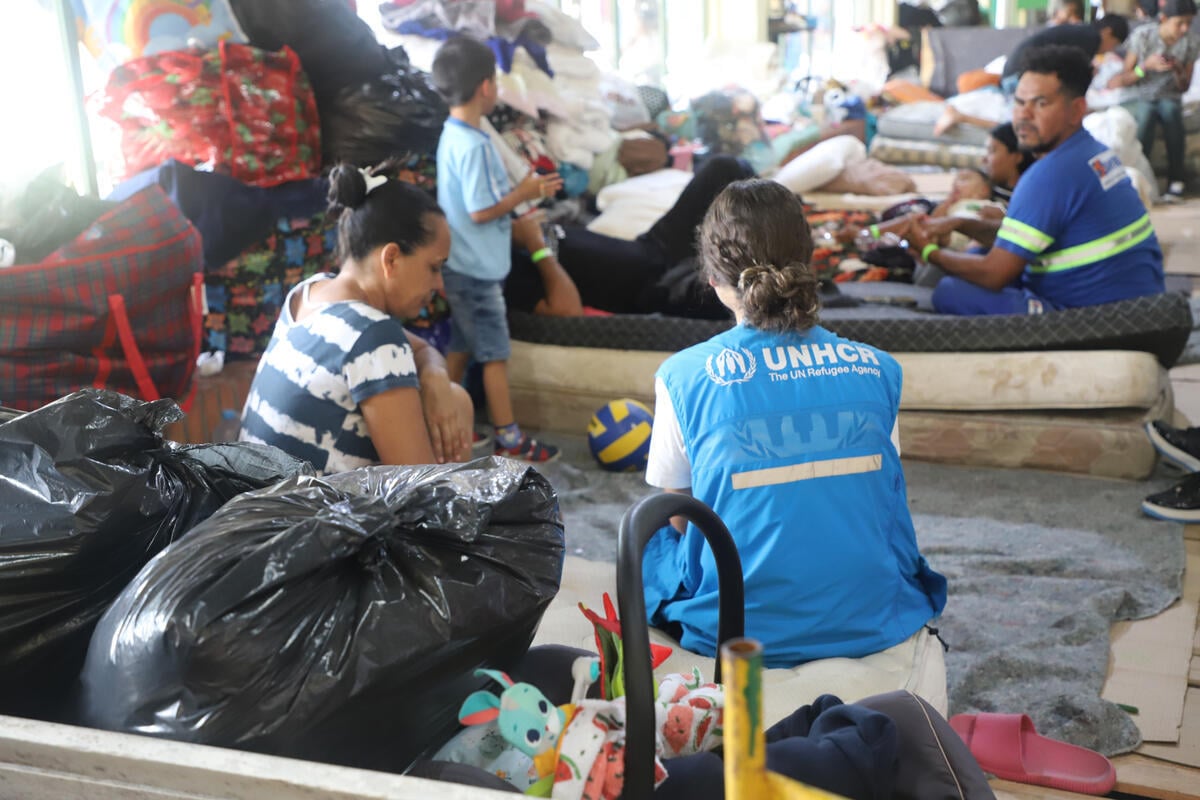Feature: Information "superhighway" for Afghans in Quetta
Feature: Information "superhighway" for Afghans in Quetta

QUETTA, Pakistan, Mar 20 (UNHCR) - Looking at the small room tucked away in the narrow lanes of an Afghan neighbourhood, no one would think that the UNHCR Public Information Centre is a hub of information for thousands of Afghans living in Quetta, the provincial capital of Balochistan in Pakistan's south-west.
The room is sparsely furnished but chock-full of information, with dozens of leaflets, magazines and posters on refugee and Afghanistan-related issues. Everyone knows this is the place to come for answers.
"Every day, 10 to 15 people come to ask me about repatriation, assistance or land issues," says Allah Yar who runs the centre which is funded by the European Commission for Humanitarian Aid (ECHO). Afghan students also visit the centre to find out about different educational programmes offered by UNHCR's non-governmental partners in Quetta.
The changing demands of people using the centre, which he has run since 2004, have reflected changes in Afghanistan itself. "In the beginning, people were very interested in security conditions in Afghanistan," he says. "After the Taliban fell, they wanted to know about development projects and what the Afghan government was doing for returnees. These days, they're keen on land issues and the availability of water and schools back home."
Allah Yar is an Afghan who was born in Pakistan. Speaking Pashto, Dari and Persian, he is an important bridge between the UN refugee agency and the urban Afghan population in and around Quetta. Besides answering queries at the centre, he also speeds about town on his motorcycle distributing UNHCR information leaflets on repatriation, legal aid, and return-related issues like health care, education and non-governmental organisation contacts in Afghanistan to Afghan schools, shops and homes.
"Fewer people are coming to the centre now because I'm reaching out to the community. I know where to find Afghans in the city and who is interested in what issues," he says. He also organises regular shura (informal consultation) sessions between Afghan community elders - both at the centre, and in their homes.
But there is a downside to his popularity. "When I go to weddings, people ask me about repatriation. At funerals, they want to talk about the latest situation in Afghanistan. When I'm distributing meat during Eid, they ask if it's sponsored by UNHCR."
Not that he minds. "I want to help my countrymen," says Allah Yar. "The more information they have, the more equipped they'll be to make the right decision on return."
In addition to the Public Information Centre, UNHCR has been disseminating information to Afghans through leaflets distributed by NGO partners and field teams in Afghan refugee camps. The agency is also funding a radio show on Pakistan Radio every Wednesday to spread the latest news on refugee-related matters like camp closure and relocation, and to answer any queries Afghans in Pakistan may have.
Since the start of the repatriation season earlier this month, over 3,000 Afghans have returned home through Balochistan and North-West Frontier Province under UNHCR's voluntary repatriation operation. More than 2.7 million have repatriated from Pakistan with UNHCR assistance since the refugee agency started the programme in 2002. Some 2.6 million Afghans remain in Pakistan.
By Vivian Tan in Quetta, Pakistan

